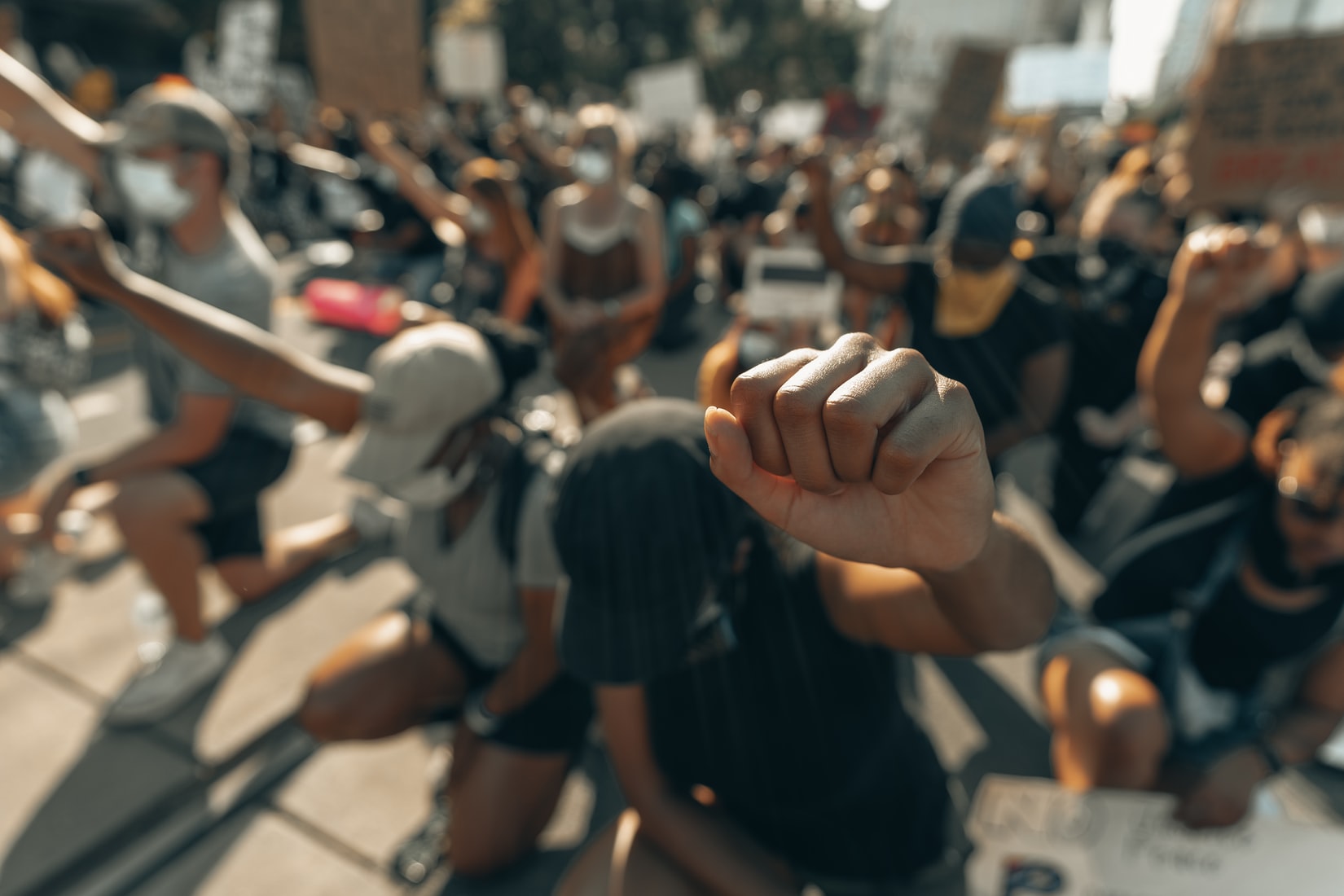Roar writer Rayyanah Munye on the legacy of George Floyd and BLM a year after his death.
May 25 marked the one year anniversary of the death of George Floyd. The outrage that followed fundamentally altered the discourse surrounding race in the 21st century. The structures that upheld systemic racism were being challenged. A year on from Black Lives Matter entering the public consciousness, how much progress has been made?
The first notable use of the phrase “Black Lives Matter” came in July 2013 following the not guilty verdict in the George Zimmerman trial. Zimmerman faced second-degree murder charges over the shooting of Trayvon Martin. Martin was an unarmed 17-year-old African American boy returning home after visiting a convenience store when shot by Zimmerman, a neighbourhood watchman.
Trayvon Martin wasn’t the first young black boy to be killed unlawfully, but he was the first to create a social media movement. The acquittal of his killer didn’t simply reveal the failures of the American justice system. In fact, it highlighted that it would never protect Black people. This paradox has subsequently inhibited the progress from Martin’s death in 2012. His death was a result of the pervasive racism that has a stronghold in America’s institutions and people. Justice and prevention of such violence will not come from the establishment.
The deaths of George Floyd and Breonna Taylor led to international outrage during the summer of 2020 pushed Black Lives Matter to the forefront of international attention. The resulting protests seemed to signal a shift in society. People gathered in the streets in unprecedented numbers. Protestors threw statues of slave owners into the river. The concept of defunding the police entered the cultural consciousness. The three words became inescapable as the news cycle fixated on debating, justifying, and condemning the movement.
Almost a year has passed since these events. Brett Hankison, an officer-involved in Breonna Taylor’s death, only faced charges of wanton endangerment. The other two officers involved will not face direct charges for Taylor’s death. In contrast, a jury convicted George Floyd’s killer, Derek Chauvin, on all 3 charges.
Controversy engulfed the Chauvin trial as another Black death at the hands of police happened no less than 10 miles away from the courthouse. Brooklyn Centre police officer Kim Potter shot Daunte Wright at a traffic stop after pulling him over for an outstanding warrant. According to the police chief, Potter had mistaken her gun with her taser.
The death of Daunte Wright has drawn attention to the seemingly never-ending cycle of black trauma. Another death, outrage, and a trial that is statistically likely to end in acquittal. For every George Floyd or Daunte Wright, we ignore countless others as the news cycle ends and we move on. The black squares and pledges to do better which dominated social media have manifested into nothing.
The primary issue is that the activism surrounding these deaths is reactionary. These social justice campaigns are merely a spontaneous reaction to individual acts of violence. A storm on social media can take off in the right conditions but by nature is not sustainable. We respond by asking for justice instead of preventing the conditions that allowed violence to occur. As a result, very little tangible progress has been made since the uprising of last year.
The goal was never to convict Chauvin. The goal is to build a society where state-sanctioned violence is eliminated. Chauvin’s sentencing is only a minor consolation for those who held their breath in anticipation of a not guilty verdict. A world, where the police are accountable for their actions, seems increasingly distant. House Democrats have just passed a bill providing $1.9 billion to the Capitol Police, National Guard, and Department of Defence among other policing institutions. In contrast, the Breathe Act, a comprehensive bill supported by Representatives Rashida Tlaib and Ayanna Pressley, redirects money from the police in favour of community initiatives, has not received widespread support. The radical nature of the bill makes it a distant prospect, but the evidence shows that the policing system is not fit for purpose.
The solution to the unnecessary deaths of Black people is clear. We must organise against the institutions that facilitate violence instead of the individual moments that dominate the airways. The key is in sustaining the community we discovered last year into continuing the journey towards social justice.


















